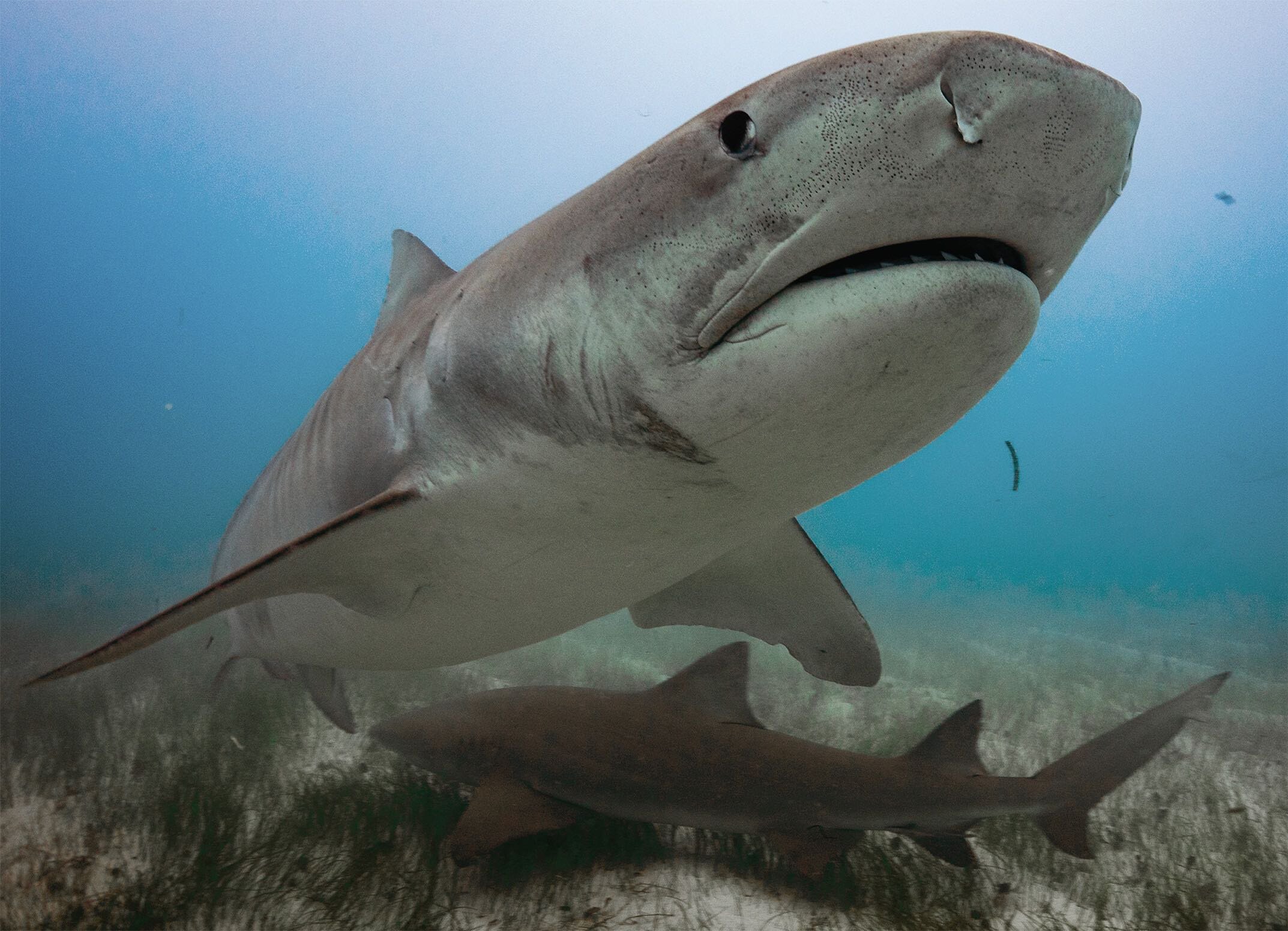Ecological roles and importance of sharks in the Anthropocene Ocean
Photo Credit: © https://www.science.org/doi/10.1126
Ecological roles and importance of sharks in the Anthropocene Ocean
Simon Dedman | Jerry H. Moxley | Yannis P. Papastamatiou | Matias Braccini | Jennifer E. Caselle | Demian D. Chapman | Joshua Eli Cinner | Erin M. Dillon | Nicholas K. Dulvy | Ruth Elizabeth Dunn | Mario Espinoza | Alastair R. Harborne | Euan S. Harvey | Michelle R. Heupel | Charlie Huveneers | Nicholas A. J. Graham | James T. Ketchum | Natalie V. Klinard | Alison A. Kock | Christopher G. Lowe | M. Aaron MacNeil | Elizabeth M. P. Madin | Douglas J. McCauley | Mark G. Meekan | Amelia C. Meier | Colin A. Simpfendorfer | M. Tim Tinker | Megan Winton | Aaron J. Wirsing | Michael R. Heithaus
Science (2024), Vol 385, Issue 6708
DOI: https://doi.org/10.1126/science.adl2362
Editor’s Summary
Sharks are well known as massive top predators with large pelagic ranges. This conception is accurate but too narrow. Sharks occupy a wide variety of niches and come in a range of sizes and shapes. Dedman et al. reviewed the ecological roles that sharks play and their importance in terms of how they affect their ecosystems. Many sharks are essential to ecosystem functioning, and many of these effects have been altered by human impacts on shark populations. Rebuilding these populations is essential not only for conserving sharks, but also for conserving their ecological function. —Sacha Vignieri
Abstract
In ecosystems, sharks can be predators, competitors, facilitators, nutrient transporters, and food. However, overfishing and other threats have greatly reduced shark populations, altering their roles and effects on ecosystems. We review these changes and implications for ecosystem function and management. Macropredatory sharks are often disproportionately affected by humans but can influence prey and coastal ecosystems, including facilitating carbon sequestration. Like terrestrial predators, sharks may be crucial to ecosystem functioning under climate change. However, large ecosystem effects of sharks are not ubiquitous. Increasing human uses of oceans are changing shark roles, necessitating management consideration. Rebuilding key populations and incorporating shark ecological roles, including less obvious ones, into management efforts are critical for retaining sharks’ functional value. Coupled social-ecological frameworks can facilitate these efforts.
Supplementary materials
Available here

